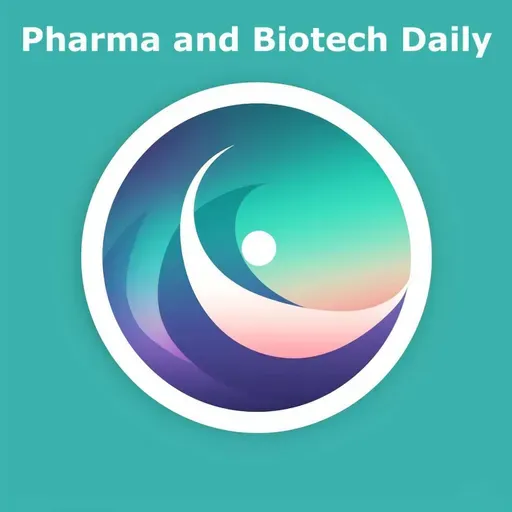
10 November 2025
FDA Milestones and Oncology Innovations: Key Industry Shifts
Pharma and BioTech Daily
About
Good morning from Pharma Daily: the podcast that brings you the most important developments in the pharmaceutical and biotech world. Today, we're diving into a series of groundbreaking developments that are reshaping the landscape of drug development and patient care. These stories highlight the dynamic nature of the pharmaceutical and biotechnology industries, where scientific advancements and regulatory changes are driving significant shifts.We begin with a crucial milestone in oncology treatment. The FDA has granted approval to Johnson & Johnson's Darzalex Faspro for patients with high-risk smoldering multiple myeloma. This approval is particularly significant as it provides a new therapeutic pathway for individuals with this precursor condition to active multiple myeloma, which previously had few treatment options. The drug works by targeting CD38 proteins on myeloma cells, representing a leap forward in monoclonal antibody treatments for cancer. This decision underscores the FDA's ongoing commitment to expanding treatment options for conditions with high unmet needs, potentially setting a precedent for future approvals in early-stage malignancies.Meanwhile, Gilead Sciences encountered challenges with its oncology pipeline as Trodelvy failed to meet its primary endpoint in a Phase 3 trial for first-line HR+/HER2-negative metastatic breast cancer. This outcome highlights the complexities of oncology drug development, despite previous successes in other indications. Such setbacks remind us of the inherent risks involved in bringing innovative therapies to market.In contrast, Akeso has announced positive data for ivonescimab, a PD-(L)1xVEGF bispecific antibody. The drug demonstrated significant overall survival benefits in patients with previously treated EGFR-mutated non-small cell lung cancer. This advancement underscores the therapeutic potential of bispecific antibodies in cancer immunotherapy, which continue to gain traction as they target multiple pathways involved in tumor growth and immune evasion.Regulatory incentives have also been making waves. The FDA's rollout of the second round of "national priority" voucher winners aims to accelerate drug development timelines, particularly in critical areas such as obesity. Companies like Lilly and Novo Nordisk have been recognized for their efforts, highlighting a broader strategy to bring transformative therapies to market more swiftly.On the corporate front, Bayer's proposed private equity buyout fell through due to insufficient shareholder support, reflecting ongoing financial volatility and strategic recalibrations within biotech firms. Meanwhile, CMS's introduction of a new Medicaid pricing model aims to implement "most-favored nation" pricing strategies to control drug costs, signaling potential shifts in how pharmaceutical companies approach pricing negotiations and reimbursement strategies.Technological advancements are also at the forefront of innovation. Eli Lilly has expanded its AI-driven drug discovery partnership with XtalPi, focusing on antibody development. This collaboration exemplifies how AI is increasingly being integrated into pharmaceutical research to enhance drug discovery processes.Furthermore, China's decision to lift its ban on Illumina's DNA sequencers is expected to facilitate greater access to advanced genomic technologies within the region, fostering innovation in precision medicine.Leadership changes continue to shape industry dynamics. For instance, Recursion Pharmaceuticals is undergoing executive restructuring to better align with evolving market needs and innovation strategies. These changes are crucial for maintaining competitiveness and fostering an environment conducive to scientific breakthroughs.The industry is also witnessing strategic realignments as companies pivot from clinical-stage assets to more promising preclinical candidates. This trend is evident wit
Support the show